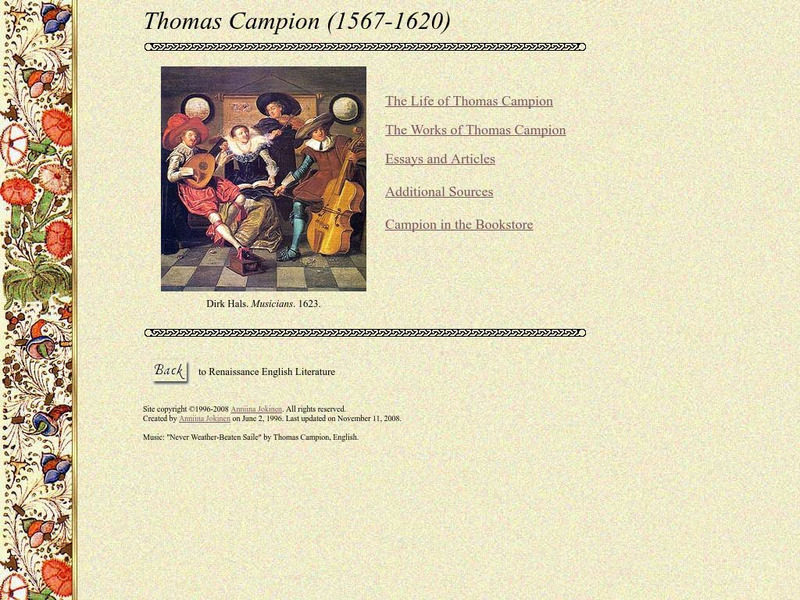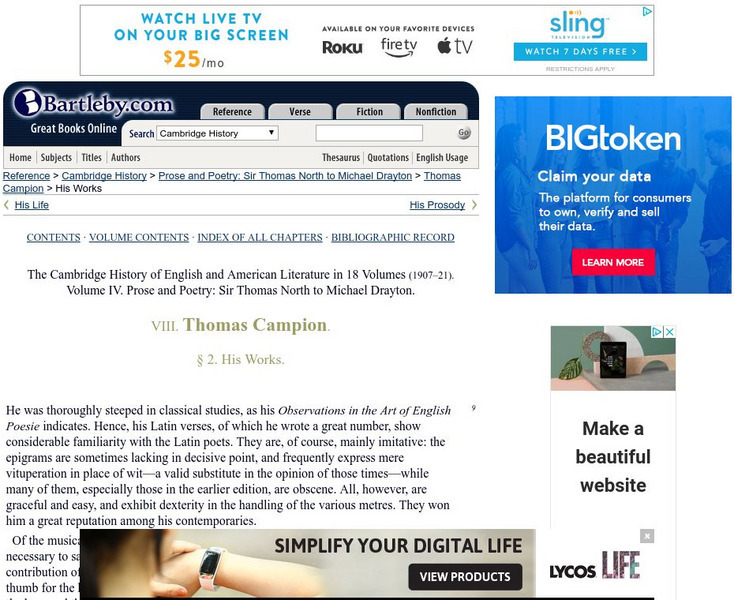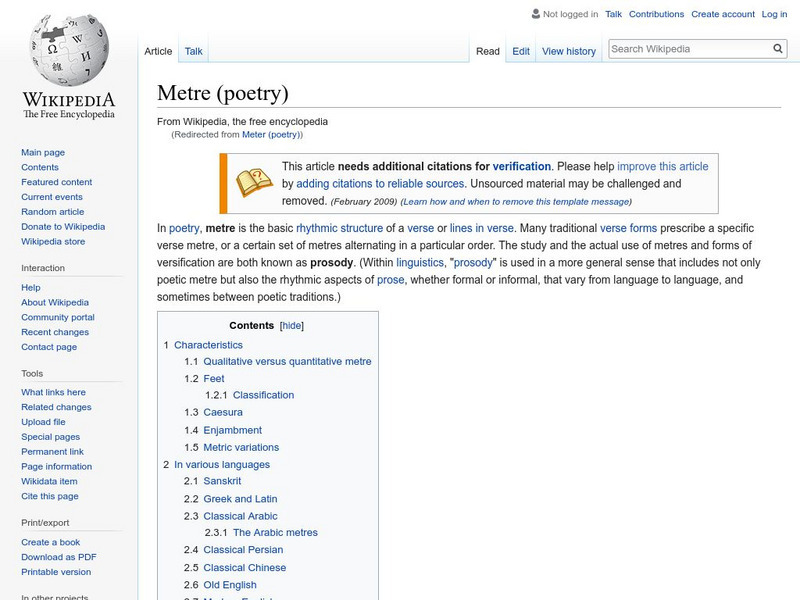Other
University of Birmingham Philological Museum: Latin Poetry of Thomas Campion
Very extensive text of Campion's Latin poetry with Latin text, translations, commentary notes, and textual notes.
Luminarium
Luminarium: Thomas Campion
Links from this site access biographical information concerning Thomas Campion, texts of his works, articles and essays about his works, and a list of other available sources.
Bartleby
Bartleby.com: Thomas Campion
A survey of Campion's works from the Cambridge History of English and American Literature. Includes link to an essay on his prosody.
Wikimedia
Wikipedia: Meter (Poetry)
Wikipedia article that first generally defines meter in poetry and then provides a very detailed discussion. Sections of the article include the following: Technical terms in poetic meter (Disyllables, Trisyllables, Tetrasyllables),...
Authors Calendar
Author's Calendar: Virgil
This biography of Virgil, author of the famous Roman epic The Aeneid, is complemented by selected quotes from his works and a detailed bibliography.
Able Media
Able Media: A Modern Student's Guide to Catullus
The Modern Student's Guide to Catullus by Raymond M. Koehler brings the poems of the Roman poet Catullus and the Latin language to life through song and story.
Able Media
Figures of Speech Syntax Exercise
Wonderful exercise uses lines from Book II of Vergil's "Aeneid," to test mastery of rhetorical devices that pertain to syntax. Encourages practice of many skills.
Able Media
Classics Tech Center: Using Latin Poetry at Low Levels
Site presents ten techniques for introducing authentic Latin poetry to students in lower level Latin classes. The author focuses on Martial and Catullus.
Able Media
Figures of Speech: Rhetoric Exercises
This site is a great exercise that helps students practice identifying and translating rhetorical devices in Latin poetry. Uses examples from Book II of Vergil's Aeneid.
Other
Reflections on Ovid's Metamorphoses
Interesting commentary and analysis of Ovid's "Metamorphoses". Examples in the essay are linked to the poem itself. Topics range from the nature of the gods and goddess to many Roman virtues. Good reading!










